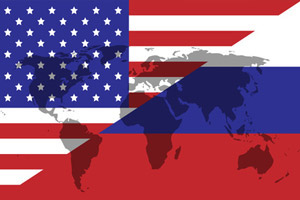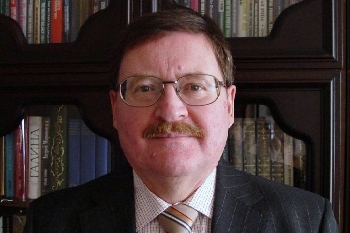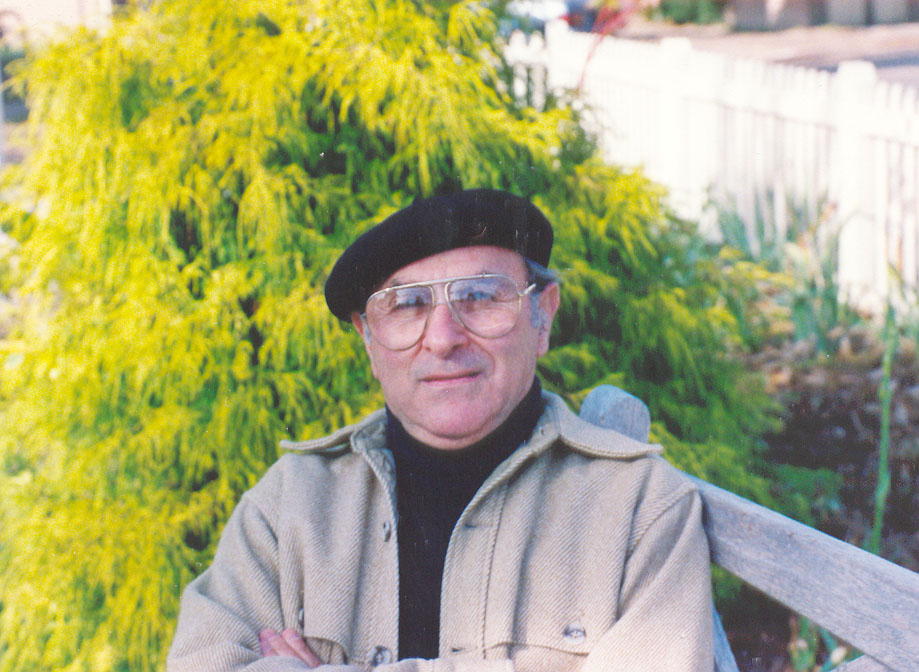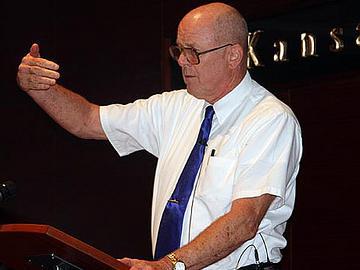
Published 23-01-2013, 14:39
 The imminent arrival in Moscow of Barack
Obama‘s National Security Adviser, Tom Donilon – ahead of the President’s visit
there later this year – just might turn out to signal an eventual
breakthrough in US-Russia relations. As he embarks on his second term in
office, Obama is now free to pursue a more pragmatic policy towards Russia.
Donilon’s meeting with Putin and the Secretary of Russia’s Security Council,
Nikolai Patrushev, will almost certainly address the main sticky issues,
including missile defense and further nuclear arms reductions. If the two sides
are finally prepared to adopt a more constructive approach than has been the
case so far, they just might be able to edge toward a historic deal of global
significance.
The imminent arrival in Moscow of Barack
Obama‘s National Security Adviser, Tom Donilon – ahead of the President’s visit
there later this year – just might turn out to signal an eventual
breakthrough in US-Russia relations. As he embarks on his second term in
office, Obama is now free to pursue a more pragmatic policy towards Russia.
Donilon’s meeting with Putin and the Secretary of Russia’s Security Council,
Nikolai Patrushev, will almost certainly address the main sticky issues,
including missile defense and further nuclear arms reductions. If the two sides
are finally prepared to adopt a more constructive approach than has been the
case so far, they just might be able to edge toward a historic deal of global
significance.
This would involve an acknowledgement of the limits of US influence in the former Soviet Union and an implicit recognition of the long-term positive role that Russia can play there. Obama’s new foreign policy team, headed by seasoned pragmatists such as John Kerry, may be able to accept that far from pursuing "re-Sovietization”, Russia is, in fact, the only Eurasian power able to reintegrate the region and hence put it on a more stable footing. In return, Washington may obtain Moscow’s quiescence over its "Pivot to Asia” – that is, a repositioning of the US’s military might from the Middle East to Asia in response to China’s growing influence there.
True, Washington’s main concern is its relationship with China, not Russia. But that is precisely why the US needs to overcome its differences with Russia: should Russia, a nuclear superpower and key Eurasian power, swing firmly behind China, the US’s "Pivot” would become much more costly and riskier. Equally, Beijing, determined to preserve its image of "peaceful development”, needs its Russian neighbor to safe-manage its steady expansion into Central Asia and the Far East.
Should progress in this direction be made, the world might inch a step closer to a more harmonious relationship between these three major players. Beijing might perceive Washington’s "Pivot” as less menacing and, as a result, signal its guarded acceptance of that policy. A propitious environment might be created for the stabilization of Afghanistan following the withdrawal of US forces by the end of 2014, which would help ease tensions in the region. And the three superpowers might start working together with a view to reducing the turmoil in the Middle East.
Of course, many will argue that entertaining such thoughts is merely naïve. However, the alternative is a further ratcheting up of tensions that would risk not only a dangerous military confrontation but serious damage to the main pillar of today’s global economy – the US’s relationship with China. The pressure of the global economic crisis – not to mention the US’s dire fiscal position – would, in fact, suggest that Washington has little choice but to swing toward pragmatism.
Questions:
•History is often shaped by sudden breakthroughs and, more recently, by moments at which geopolitical "tectonic plates” shift. Are we about to witness something of this nature?
•Is Obama capable of adopting a pragmatic approach in the interest of global stability (thereby belatedly proving that he fully deserved the Nobel Peace Prize awarded to him in 2009)?
•What concessions should Russia make to enable Obama to move toward pragmatism?
------------------------
 The topic for the Discussion Panel is provided by Vlad Sobell,
The topic for the Discussion Panel is provided by Vlad Sobell, Editor, Expert Discussion Panel
Professor, New York University, Prague
Editor, Consensus East-West Europe
Expert Panel Contributions
Edward Lozansky
President American University in Moscow
Professor of World Politics, Moscow State University
If there is anything both the fans and critics of Putin might agree upon, it's this: the guy keeps his word. To my knowledge, no one has disputed this fact.
One might say the same thing about Obama - perhaps a bit hesitantly. He did some flip-flopping on raising the debt ceiling, but foreign policy issues are a different matter.
Admittedly, Putin has a more or less free hand in shaping the foreign policy agenda, whereas Obama faces an openly hostile Congress and an overwhelming anti-Russia media bias. Thus seeking compromises is for Obama a much tougher job. Still, it is on the record that he is prepared to do so – through the message he passed to Putin through Dmitry Medvedev about showing "more flexibility” on ballistic missile defense (BMD) after the elections. Moscow has every right therefore to expect him to keep his word and deliver on that promise.
Such flexibility, of course, must not hurt US security interests. On the contrary: it should to a large degree benefit these interests. We are talking about joint US-Russia effort in developing BMD. It is very hard to understand the logic of those in Washington who adamantly oppose this idea.
A country that is approximately equal to the US in terms of weapons of mass destruction has for more than 20 years been practically begging the West to form a joint security infrastructure to protect the US, Russia and their allies from a possible attack from the rogue states. Regrettably, this plea has been stubbornly ignored.
It follows that the obvious question is: Who are the better American patriots? Those who say to the Russians: Sorry guys, we have been making a bad mistake all these years by turning you down; now let's talk serious business; let's discuss what we can do together to meet the mutual security threats? Or is it those who keep saying arrogantly: Thanks, no way; you Russians are no good on democracy and human rights; you do not share our values, so we'll stick to our BMD program and you stay out?
Clearly, only folks unable to think straight will believe that it is indeed Russia's deficient democracy that stands in the way of serious consideration of a solid Russia-West joint security effort. Democracy? Just look at the list of American and European allies in "building democracy" in the Middle East. Or look at the so-called "rebels”, supported by the West through the flow of arms and money. Many of those "rebels” are now fighting in Mali and Algeria.
For some time now Ukraine has had a standing invitation to join NATO, yet everyone knows who the heroes of the "Orange revolution” were and how that "revolution" was enthusiastically supported by the West. Are President Viktor Yushchenko (who schmoozed with Nazi collaborators) and Prime Minister Yulia Tymoshenko (who stands accused of paying nearly $3 million for the murder of a colleague) the great "democrats” who share Western values?
One could go on endlessly citing such examples. They show most clearly that the truth behind US-Russia relations is quite different from what the politicians and the media say. It is, of course, hard to fathom what goes on in the minds of those, no doubt very bright, analysts in high places who help shape the White House's foreign policy agenda, including, of course US policy toward Russia. Maybe they know something we do not. However, from what we do know (including what is discussed above), their continued advice to turn down Russia's entreaties for security cooperation is a huge geopolitical mistake.
It is therefore very doubtful that Obama will propose any dramatic changes in US policy on BMD or in other areas. It takes the vision of someone like Ronald Reagan to ignore his advisers and map out a daring new strategy.
Obama is no Reagan, that's for sure. Still, with the two new pragmatic lieutenants at his side, John Kerry and Chuck Hagel, he might have more room for maneuver. It is pretty doubtful, though, that he can do more than offer some very modest compromises. Most likely they will not be sufficient for the Russian side.
So what’s next? Can things get worse?
As Stephen Cohen, a top expert on Russia, rightly says, "[W]ith the full support of a feckless policy elite and an uncritical media establishment, Washington is slipping, if not plunging, into a new cold war with Moscow" (see immediately below for Cohen’s full commentary).
Now, is there anything that can be done to avoid such an undesirable turn of events?
Strange as it may sound, I believe that the ball is in Russia's court. Since the general public in the United States is unaware of the BMD details and of the possible benefits of security cooperation with Russia, what is needed is a simple and clear outline of Russia’s proposals in this area. These proposals must be promoted through all available soft power channels to win the hearts and minds of the public in America and Europe.
Needless to say it will not be an easy task. Such an initiative will meet with fierce resistance from and denigration by the huge army of anti-Russia lobbyists and Western media. However, the alternative scenario – a fresh round of the Cold War, with all its unpredictable and harmful consequences – is unacceptable.
Stephen F. Cohen
Professor emeritus at New York University and Princeton University
With the full support of a feckless policy elite and an uncritical media establishment, Washington is slipping, if not plunging, into a new cold war with Moscow. Relations, already deeply chilled by fundamental disputes over missile defense, the Middle East and Russia’s internal politics, have now been further poisoned by two conflicts reminiscent of tit-for-tat policy-making during the previous Cold War.
In December, Congress, in a fit of sanctimonious lawmaking and indifference to larger consequences, passed the Magnitsky Act. In effect a blacklist without due process, it will punish Russian officials (and perhaps their family members) alleged to be guilty of "gross violations of human rights” in their own country. However odious such individuals may be, Russia’s political class was bound to resent yet another haughty American intrusion into its political and legal affairs. A no less capricious Russian Parliament quickly responded by banning American adoption of Russian orphans, long a highly sensitive issue, which will go into full effect in 2014. Little opposition was voiced in either legislature.
There was, however, a significant difference. Under President Vladimir Putin’s "authoritarian regime,” the Russian media were filled with heated controversy over the adoption ban, including denunciations of Putin for signing it. In the "democratic” US mainstream media, on the other hand, there has been only applause for the Magnitsky Act and President Obama’s decision to sign it. Nor is this the first time leading American newspapers and television and radio outlets have been cheerleaders for a new cold war.
Although the US political-media establishment routinely blames Putin, the movement toward cold war, instead of partnership, with post-Soviet Russia began almost a decade before he came to the Kremlin—in the 1990s, in Washington, under the Clinton administration. Indeed, President Clinton initiated the three basic components of what has remained Washington’s Russia policy ever since, from George W. Bush to Obama: expanding NATO (now including missile defense installations) to Russia’s borders; "selective cooperation,” which has meant concessions by Moscow without meaningful US reciprocity; and interference, in the name of "democracy promotion,” in Russia’s domestic politics. For twenty years, this Cold War approach has had overwhelming bipartisan support among the US political elite and mainstream media.
Consider the most recent episode, Obama’s 2009 purported "reset” of relations with Moscow, or what was called "détente” in another Cold War era. Obama wanted three concessions from the Kremlin: assistance in supplying NATO forces in Afghanistan, harsher sanctions against Iran and Russia’s abstention on the UN Security Council vote for a no-fly zone over Libya. The White House got all three. In return, Moscow wanted a formal end of NATO’s expansion to the former Soviet republics, a compromise on European missile defense and a cessation of direct American involvement in Russian political life. Instead, it got an escalation of all three offending US policies, again with virtually unanimous bipartisan and media approval.
Things weren’t always like this. From the 1960s to the 1990s, fierce debates raged between Americans proposing colder war and those advocating détente. Both sides had substantial support in the administrations and Congresses of those years, and both appeared regularly on leading op-ed pages and on national television and radio. The democratic process was working, itself a rebuff to a Soviet system that prohibited such public debates.
But no longer. Obama has surrounded himself with Russia advisers, including the current secretary of state, Hillary Clinton, wedded to the twenty-year-long approach. As for Congress, it has long since become a bipartisan bastion of Cold War lobbyists, hearings, resolutions and legislation, with barely a handful of House representatives—too few of them liberal or progressive Democrats—protesting this reckless folly. Even the grassroots "peace” and "anti-nuke” movements of a previous era have all but vanished.
. . .
The media, considering their essential role in national security discussions, have been especially culpable, violating their own professional canons in coverage of Russia-related matters. Newspaper editorials now range from endorsing the administration’s inherently Cold War line to complaining that it is too "soft” on the Kremlin. Dissenting opinions rarely, if ever, appear on influential op-ed pages or on national television or radio. (Cable, even MSNBC, and "public” broadcasting are no different.) Editorial bias has even spilled over into news reporting. In particular, the media’s relentless demonization of Putin, often unfactual or illogical, has nearly displaced serious, multidimensional analysis.
The media’s focus has also been selective. Coverage of last year’s Moscow street demonstrations against Putin was exhaustive, but US correspondents have ignored an extraordinary new kind of protest in the same capital. From December 18 to December 27, students and faculty of the Russian State University of Trade and Economics (RGTEU) defied a ministerial takeover of their institution—its head, Sergei Baburin, a prominent political figure, was ousted by the ministry—by occupying the large complex day and night, suspending the action only for the Russian holidays and pending an appeal to Putin. If their protest spreads to other universities, Russia could experience its first large-scale student strike in many decades, with major political consequences.
Why have American media failed to report this development? Is it because the university students and faculty, unlike several leading street protesters, do not have personal ties to the US press and to Washington officials? Or because they, also unlike many of last year’s street demonstrators, are not avowedly pro-Western but nationalist-oriented? Or because the university rebellion is directed not against Putin (its slogan is "Putin—we believe in you. Putin—save RGTEU”) but against the government of Prime Minister Dmitri Medvedev, once a White House favorite? Or is such complexity simply too much for the orthodox media narrative of post-Communist Russia?
Nearly thirty years ago, more pluralistic American media coverage of Soviet Russia helped President Ronald Reagan meet its leader, Mikhail Gorbachev, halfway in a joint effort to abolish the Cold War forever. (They thought they had succeeded.) Both leaders encountered powerful opposition in their respective parties and media, but they also found significant support. Too much may have changed—in the quality of leadership, in the political elites of Washington and Moscow, and in US media practices—for it to happen again.
This commentary was first published in The Nation on 16 January 2013.
 Vladimir Kozin
Vladimir KozinLeading Researcher, Russian Institute for Strategic Studies, Moscow
My answer to the first question:
Yes, there is a strong probability that the world may witness a "tectonic plates" shift in the strategic equation between two major superpowers (the US and Russia), but it would be due to the continuing plans to deploy the US missile defense shield in Europe. The US is proceeding with this project without Russia's participation on an equal footing, in violation of the key principle of equality and equal security, and in the knowledge that this constitutes a formidable threat to the Russian strategic nuclear deterrence and Russian national security interests as a whole. So, if the American BMD system continues to be implemented in the future, there is a grave risk that this will trigger a missile defense arms race and, subsequently, a strategic nuclear arms race between Moscow and Washington.
However, to avoid such a "Cassandra-type scenario", a qualitatively new ABM treaty should be elaborated. Ideally, it should be a multilateral one that could prevent rivalry between potential global BMD systems. And the US should cancel stages two, three and four of its European Phased Adaptive Approach (EPAA) and focus mainly on improving its continental BMD. An exception from the latter provision: naval vessels with BMD assets should be able to sail the World Oceans freely, (without any limitation) but there should be mutual agreement that they should not approach too closely the territory of the "high contracting parties”; also some parts of the adjacent seas along the coastline of the USA and Russia should be designated "zones free from ballistic missile defense” – on an equal footing, naturally.
My answer to the second question:
No, President Obama is not capable of adopting a pragmatic approach in this domain owing to the deeply-rooted military and strategic perceptions prevailing in the US military-political establishment, which have been carried over from the Cold War era. This shows that it was a mistake to have awarded him the Nobel Peace Prize in 2009. President Obama in his first term failed to meet expectations in the arms control domain: except for the signing the New START in 2010 with Moscow, he did not succeed in finding solutions in four key areas related to the global stability and global security, namely:
•The BMD arms race (it has already started);
•Tactical nuclear weapons (no negotiations to downsize them have been held since 1945);
•Conventional arms (no new CFE Treaty has been drawn up);
•Arms in outer space (there are no legal norms in the international law so far preventing their emplacement).
My answer to the third question:
There is no need for Russia to make any concessions for the following reasons:
•Moscow is not going to emplace its BMD assets close to US territory (the US is continuing with EPAA);
•Moscow does not store tactical nuclear weapons in the vicinity of the US (the US still keeps them in Europe – by the way, three types of US free-fall nuclear tactical bombs there are considered "strategic" because they can be delivered by heavy strategic bombers, namely B-2 and B52H that can fly more than 18,000 km with air refuelling);
•Moscow does not have first-use of its nuclear arsenal written into its strategic doctrine (while the US does);
•Moscow does not have superiority in conventional forces over the US (while the US does have such superiority over Russia).
From this it follows that prompt concessions or first practical steps in the arms control should be made by Washington, not Moscow.
 Frank Shatz
Frank ShatzColumnist
The Virginia Gazette
I am a Holocaust survivor who was liberated by the Red Army in Budapest, Hungary. A native of Czechoslovakia, my command of the Russian language was questionable. But as the saying goes, a one-eyed man among the blind is king. Thus, I was recruited to be a translator at Marshall Voroshilov’s headquarters. This gave me the opportunity to interact with a host of Russians.
In 1954, my wife and I managed to escape from Communist Czechoslovakia and found refuge in the United States. I was astonished to notice how many similarities there were between the Americans and the Russians. I have found both to be generous, outgoing, hospitable and friendly. In spite of the antagonism generated by the Cold War, American’s didn’t harbor animosity toward the Russian people.
The same is true, today. A delegation of Russian professionals from Novosibirsk visited Williamsburg, Va., recently. The visit took place in the framework of the Open World Program. One of their hosts was Col. Daniel Malone, a former U. S. military attaché in Moscow. He commented: "They were individuals exercising personal initiatives, involved in highly personalized interaction with their hosts and lecturers. They will help their countrymen go far!”
While looking for ways to improve relations between the US and Russia and to build trust, I think there is no better vehicle than that of intensifying grassroots people-to- people exchange programs, initiated by both sides.
As far as the question of whether Washington will opt for pragmatism in its relations with Russia during Obama’s second-term, his President’s selection of Senator John Kerry as the next secretary of state seems to be a promising sign.
During the 2004 presidential election, while Senator Kerry was participating in the Presidential Forum on Rural Issues at the Olympic Arena in Lake Placid, NY, I had the opportunity to observe and interview him. Like many other reporters who followed him around during the primaries, I found him aloof, wooden and dour. But this impression was balanced out by an image of someone who is coolly pragmatic, self-assured and patriotic. All this seems to suggest that not ideology, but pragmatism and a quest for stability in the world will guide American policy toward Russia. But for that to happen Russia will have to show that it is willing to reciprocate.
 Dale Herspring
Dale HerspringUniversity Distinguished Professor of Political Science
Kansas State University
My reading of Putin is that he is a gradualist. I don't see him making radical changes. The same is true of Obama, albeit for different reasons. He has to worry about the Hill.
Perhaps I define "breakthrough" differently than Vlad does. I don't see a sudden change. I can see a gradual one, but before that happens (from the US side) I think the law banning the adoptions will have to be repealed. I understand the frustration that led to it, but I am speaking from one who looks at things from the perspective of the average American.
Vlad is right about the China factor. Here, however, is the problem and it is an American problem. I am certain that just about every person who thinks about it would agree that one of Washington's primary tasks is to forestall any China-Russia alliance. The problem, in my experience, is that foreign policy is just not as rational as some might think it is. I suspect if one spoke with influential people on the Hill, the overwhelming majority would agree: Keep Russia and China from getting too close, regardless of how difficult the task is. But then they would have gone on to vote in any case for the infamous Magnitsky Bill that led to the adoption law.



_jpg/250px-ElbeDay1945_(NARA_ww2-121).jpg)








